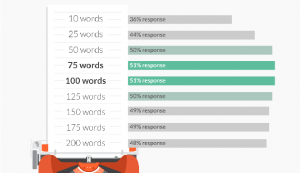Before you continue reading this article, make sure you head to part 1 of How to Develop a Winning Pinterest Strategy and check out the infographic with all 11 tips at the bottom of this page!

6) Find Your Go-To Pinners
Once you have an idea of the type of content that you want to create on Pinterest, it’s also important to determine who else’s content that you want to share with your audience.
You can pin nothing but your own content, but if you want to have a larger reach and develop reciprocal relationships with other pinners that will share your content, then it’s a good idea to share relevant content created by fellow pinners.
It’s important to provide resources that help your audience with their problems, which then helps them see you as trusted resource.
What you want to do is create a list of 10 pinners whom you want to follow and repin content from regularly. This will take time and research up front, but will save you a lot of time during the days you get “pinners block” when you just don’t know where to get new sources of pins.
However, don’t just follow people with millions of followers. Follow pinners and their boards which will best serve your audience.
Once you have determined your list of 10, put their Pinterest url, which will look something like www.pinterest.com/tailwind in a document and refer to these pinners when you feel that you’re stuck for ideas on what to pin.
7) Decide The Type Of Keywords You Would Like To Rank For
Creating amazing visuals is a great way to get more repins, but one of the best ways to ensure that you get even more repins is by putting in the right keywords (search terms that people use) in your pin descriptions.
By adding keywords in your pin descriptions, it increases the chances of your pin showing up for that search term in the search results on Pinterest.
Here’s a pin that I created that ranks well for the search term, “Route 66 road trip.” The keywords I was aiming for were, “Route 66,″ “Route 66 road trip,” and “road trip.” This pin is currently ranked number one for the search term “Route 66,″ “Route 66 road trip,” and is hovering around 20th spot for the term “road trip” in North America.

Now you may be wondering what type of keywords you should put into your pin description. This is where a tool like Guided Search can be of help. Did you notice the extra words in tiles just below the search bar? That’s Guided Search.
Guided Search was designed to help users of Pinterest find what they were looking for more easily. As a positive side effect, it also meant that businesses had access to keyword data. You now know what types of keywords to put into your pin description that will help you attract your core audience.
Let’s say you’re in the business of selling chairs. Once you type chairs in the main search, you will see is a variety of associated search terms:

If you’re in the business of selling chairs, then you would probably not want to put the word makeover in your pin description as that will attract the wrong audience. However, putting in the keywords, living room and dining, in your pin descriptions can help draw in potential customers.
What you don’t see from the picture is that there are a lot of different search terms you can use. All you need to do is go to the far right of the Guided Search bar and click on the arrow and you will see other keywords you can use as well.
When you are writing your pin descriptions, make sure that each description is trying to rank for at least two keywords, if possible try to put three.
This is because once a pin ranks well for one keyword, it can influence the ranking for the other keywords you put in your pin description.
8) Determine How Consistently You Want To Pin
The hardest part about pinning is deciding how often you want to pin and how frequently. If you’re looking for speedy results, you should definitely pin at least 10 times a day, and up to 20 if time permits.
If you use scheduling tools like Tailwind, which will tell you which days and times are the best for getting more repins. You can then use this information to determine which days you want to pin more and which days you want to pin less.
For some of my clients, activity is highest on Sundays, so I make it a point to pin and schedule more pins for those days, while Fridays tend to be slower.
The important part is having a schedule and sticking to it. If you only have time to pin or schedule pins for 15 minutes a day, then make sure you stick to that.
The reality is that you may not have the time to pin all that content, and you may want to consider hiring outside help.
While pinning pins is easy, curating the right content to help you grow your audience and influence on Pinterest does actually take time.
9) Measure Your Success
You’ll never know how great your Pinterest marketing is going until you measure the success of it. And as we talked about in part 1, you have to know what your main goals are for your Pinterest marketing.
I would imagine for you that the number of clicks you get to your website from Pinterest is a vital metric. In order to know how many clicks are going to your website you need to have your website confirmed with Pinterest.
Once your site is confirmed, Pinterest will start providing you statistics, such as number of overall repins related to your site, the number of clicks going to your site, and the number of impressions your pins are getting.

While Pinterest analytics can provide details about your profile and overall account, a tool like Tailwind can help you get granular in terms of board performances. When using Tailwind, go to the optimize content tab on the left, then choose the pin inspector.
From there you can choose the boards you want to analyze. You can find out which pins are getting the most repins on which boards, and which ones that seems to fall flat.
Analyzing board data can be extremely helpful because it will tell you which board are more likely to get more repins and you may want to pin daily to boards that show promising results.

10) Try Out Promoted Pins
Promoted Pins is one of Pinterest’s advertising platforms. This form of advertising is only available to Pinterest business accounts located in the U.S. that have a U.S. credit card available to pay and you have to apply to use Promoted Pins.
There are two types of campaigns that you can run with Promoted Pins. The first is known as CPE (cost per engagement), where you pay for each repin, close-up, and click through of your pin.
The second campaign is known as CPC (cost per click) in which you pay only for clicks to your website, but don’t pay for repins or close-ups.

Once you’ve chosen which campaign you would like to use, you then choose the dates you want to run your campaign and your daily budget. From there you can choose which pin you would like to promote. It must be a pin that you have pinned publicly.

After you’ve selected your pin, you then need to select the search terms, locations, devices and genders you would like to target.

Once your campaign is running, Pinterest can provide you detailed analytics on how well your Promoted Pins have performed in terms of impressions, close-ups, repins, and click throughs.
To get these detailed analytics, click on the “Export Data” button within your Promoted Pin analytics dashboard.

Wrapping It Up:
I hope that these eleven guidelines will help you create a winning Pinterest strategy from scratch. I hope you find using Pinterest as profitable and enjoyable as I do. Keep all of these tips in mind by saving and sharing this infographic:
If you have any questions related to Pinterest and your business, feel free to drop a line in the comments.
(191)
Report Post







